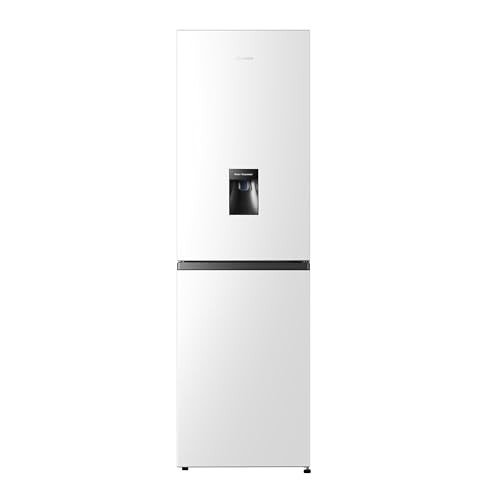Where to Buy a Fridge: A Comprehensive Guide
Purchasing a refrigerator is a significant decision due to its role as one of the most vital appliances in the home. Fridge To Buy can be found in numerous sizes, styles, and rate ranges, making the purchasing process possibly frustrating. However, understanding where and how to shop for a fridge can streamline this process. This post aims to explore different opportunities for buying a refrigerator, essential considerations, and often asked questions to help customers make notified options.
Where to Buy a Fridge
When it pertains to looking for a refrigerator, customers have several options. Each avenue offers its own advantages and disadvantages, and knowing these can assist purchasers choose the very best suitable for their requirements.
1. Brick-and-Mortar Retailers
Traditional appliance stores and big-box merchants continue to be popular destinations for refrigerator shopping. These areas include:
- Home improvement stores (e.g., Home Depot, Lowe's)
- Electronics stores (e.g., Best Buy)
- Specialty appliance merchants
Pros:
- Hands-On Experience: Customers can see, touch, and inspect the fridge.
- Immediate Availability: Many stores provide same-day delivery services.
- Sales Assistance: Trained sales staff can provide professional guidance.
Cons:
- Higher Prices: Retail rates can be steeper compared to online options.
- Limited Inventory: Smaller shops may not bring extensive selections.
2. Online Retailers
The web has revolutionized the way people shop, consisting of for appliances. Popular online options consist of:
- E-commerce giants (e.g., Amazon, Walmart)
- Manufacturer websites (e.g., Samsung, LG)
Pros:
- Wider Selection: Online stores typically have a more extensive stock compared to brick-and-mortar places.
- Convenience: Shopping can be done from the convenience of home at any time.
- Cost Comparisons: Easily compare costs across various platforms.
Cons:
- Shipping Costs: Delivery costs can contribute to the total price.
- No Immediate Gratification: Customers need to await delivery.
- Lack of Personal Interaction: No chance to ask direct concerns.
3. Storage facility Clubs
Membership-based wholesale sellers, like Costco and Sam's Club, provide fridges at competitive rates.
Pros:
- Bulk Discounts: Membership often enables savings on bigger purchases.
- Great Quality: These shops maintain high requirements for the brands they carry.
Cons:
- Membership Fee: A subscription is needed to shop there.
- Limited Choices: The stock may not include all brands or models.
4. Regional Classifieds and Marketplaces
Platforms like Craigslist, Facebook Marketplace, and OfferUp allow people to buy used or new fridges from regional sellers.
Pros:
- Lower Prices: Often cheaper than retail, especially for used items.
- Regional Transactions: Easy to see and pick up devices.
Cons:
- Risk of Quality Issues: Used models can include concealed issues.
- No Return Policy: Typically, sales are last, with no warranty or warranty.
Table of Fridge Types and Features
| Fridge Type | Best For | Key Features |
|---|---|---|
| Leading Freezer | Budget-conscious buyers | Traditional style, budget-friendly |
| Bottom Freezer | Easy access to fresh food | Ergonomic style |
| Side-by-Side | Families with restricted area | Ample storage and availability |
| French Door | Premium cooks | Design, area, advanced functions |
| Compact | Little areas like houses | Space-saving design |
Key Considerations When Buying a Fridge
As customers consider where to buy a fridge, various considerations can assist their decision-making procedure:
Size and Fitting
- Measure the Space: Ensure the fridge fits within designated kitchen area area.
- Door Swing: Account for door clearance and swing radius.
Energy Efficiency
- Look for Energy Star Ratings: This makes sure lower electrical energy costs.
- Comprehend the Long-Term Savings: Energy-efficient models may have greater in advance expenses but lower operating expense.
Design and Design
- Select a Style: Select appropriate styles such as traditional or modern according to your kitchen area looks.
- Finish Options: Stainless steel, black, and white surfaces can impact the general look.
Cost Considerations
- Set a Budget: Determine a spending range before shopping.
- Expect Discounts: Seasonal sales durations often supply cost savings.
Warranty and Support
- Producer's Warranty: Understand what is covered and for how long.
- Client service: Check rankings for maker assistance services.
Regularly Asked Questions (FAQs)
Q: What is the most energy-efficient refrigerator brand name?
A: Brands such as Energy Star, LG, and Samsung are widely acknowledged for their energy effectiveness.
Q: Is it worth buying a used refrigerator?
A: It can be, especially if you are on a tight spending plan. Nevertheless, guarantee you inspect the appliance thoroughly for any existing issues.
Q: What is the typical lifespan of a refrigerator?
A: Most refrigerators last between 10 to 20 years, depending on usage and maintenance.
Q: Should I buy a refrigerator online or in-store?
A: This depends upon individual choice. Online shopping offers benefit and choice, while in-store provides hands-on experience and instant acquiring alternatives.
Q: What features should I search for in a refrigerator?
A: Key features to think about consist of adjustable shelving, ice and water dispensers, sound level, and wise technology alternatives.
Shopping for a refrigerator doesn't have to be an overwhelming task. With various acquiring choices-- from brick-and-mortar stores to online retailers and classified ads-- consumers can discover the best refrigerator that fits their needs. By thinking about essential aspects such as size, energy performance, and design, prospective buyers are better equipped to browse the purchasing process. Ultimately, whether buying new or used, the objective stays the same: to boost the cooking area experience with a trustworthy home appliance that satisfies both practical needs and personal choices.
